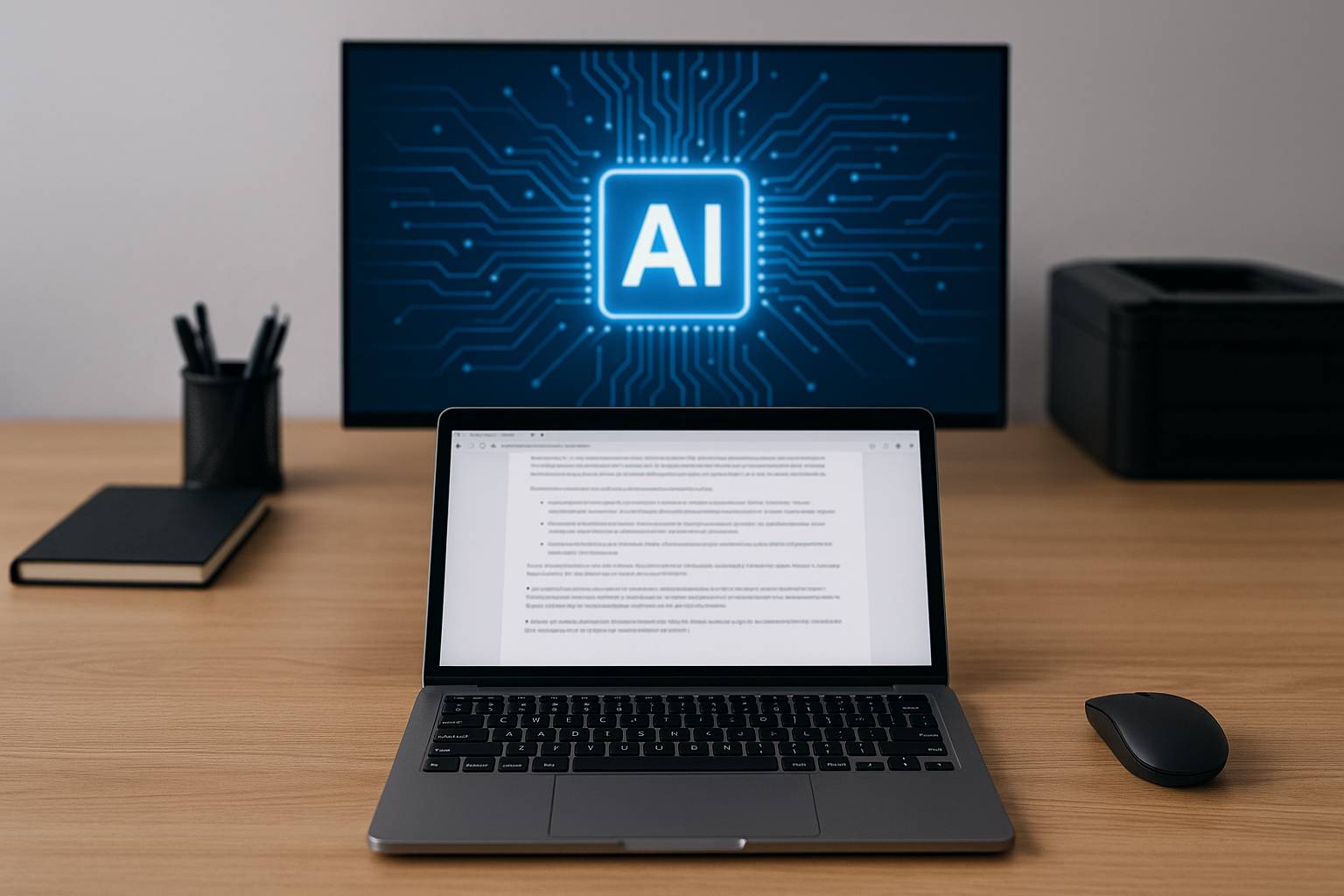
Artificial intelligence is everywhere. It promises to speed up our tasks, to optimize our processes, to free up time. But in the daily reality of a company, these promises do not always translate into a straight line. Chez Strat37, where we use AI at every stage — from code generation to meeting summaries, through documentary research or content production —, we wanted to face it: does AI really make us more productive? Our observation is mixed: yes, AI saves a considerable amount of time, but it is not necessarily where we expect it to be. It frees up operational bandwidth, while requiring greater rigor, supervision, and strategic clarity. This article shares what we have really observed in the field, between acceleration, relearning and profound transformation in the way we work.
The first tangible revolution is enhanced memory. Thanks to Copilot and the AI tools integrated into the Microsoft ecosystem, we have automated an entire invisible but time-consuming part of the work:
In other words, AI frees us from noise. It structures the past so that we can focus on the future. Where previously you had to reread notes, rummage through ten files or ask a colleague, today a simple natural request is sufficient. The time savings are enormous, especially in multi-team projects where coordination is crucial.
At Strat37, we don't talk about AI as a gimmick, but as a real productivity driver. In code, AI generates simple scripts: Python automations, data pre-processing, API requests, file cleaning. It speeds up the execution part, but the design and architecture remain human. In content, AI acts as a creative co-pilot. Our articles, for example, are written with four hands: we define the idea, the structure, the tone; the AI helps to reformulate, clarify, or test variants. In strategic thinking, she acts as a sparring partner, helping to challenge intuitions or generate relevant comparisons. It is not a replacement, but an acceleration of the iterative cycle. Where an article took three hours, it takes one, but the intellectual requirement remains the same.
AI is great at execution, but blind at strategy. She doesn't know why we do things, or how to prioritize them. Let's take a concrete example: when developing a code architecture for a customer, AI can generate the blocks, but not think of the overall logic: anticipated maintenance, readability of the code, scalability. It's business thinking, not a generational function. The same logic on the communication side: AI can produce messages and visuals, but not define brand posture or global coherence. It amplifies our clarity... or confusion.
AI makes it possible to speed up everything — including mistakes. This is the paradox of artificial productivity: if you don't control management, it amplifies drifts. Without a clear intention, we end up with an overflow of production: texts, graphics, emails, without hierarchy or impact. AI then gives the illusion of productivity, with no real value. At Strat37, we have a simple rule: AI does not think, it amplifies. It amplifies our strengths as well as our weaknesses.
On paper, AI saves time. In practice, it displaces effort: less production, more supervision. You have to reread, check, validate. Supervision is becoming a key skill: knowing how to detect an inconsistency, correct a prompt, adjust a response. In other words, a novice equipped with an AI will go quickly... in the wrong direction.
By automating peripheral tasks, AI redirects value back to design and thinking. The real gain does not lie in the time saved, but in the revaluation of time. This is what distinguishes an “assisted” company from an “augmented” one.
At Strat37, AI is everywhere in our internal tools, but never alone in control. Humans maintain direction, meaning and prioritization. The most effective AI projects are designed by business experts, not technicians. A good prompt is not enough — you need a thorough understanding of the context, constraints, and goals.
Yes, AI helps us be more productive. But not because it works for us — rather because it forces us to redefine our place. It automates the surface, frees up time, but requires more clarity and rigor. It's a thoughtful gain, not an easy win. We have seen it: AI makes our days more efficient when it is integrated into our processes, supports our expertise and remains aligned with a human vision of work. In other words: it's not AI that makes you more productive, it's how you use it.